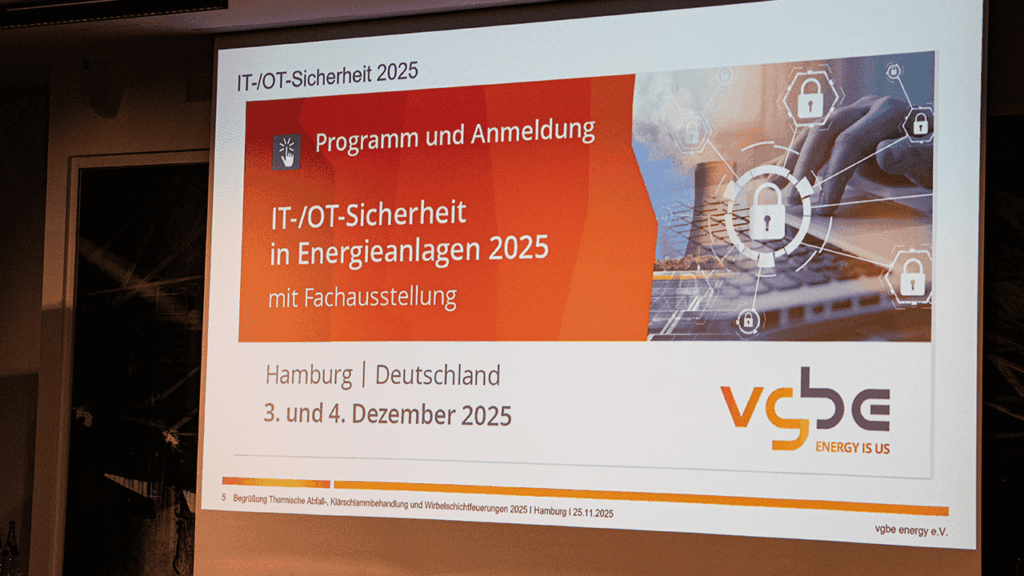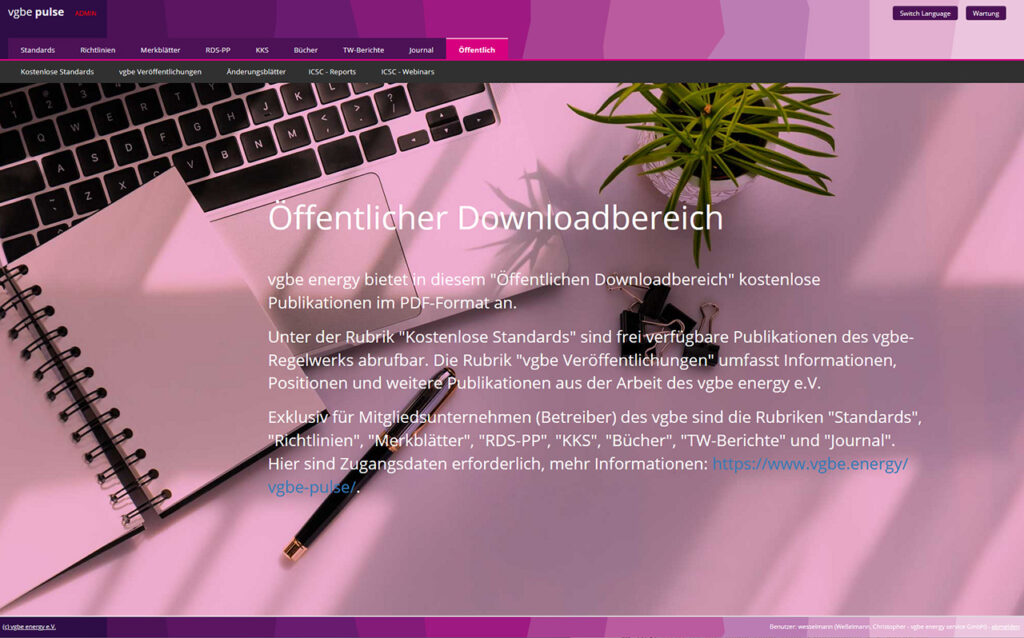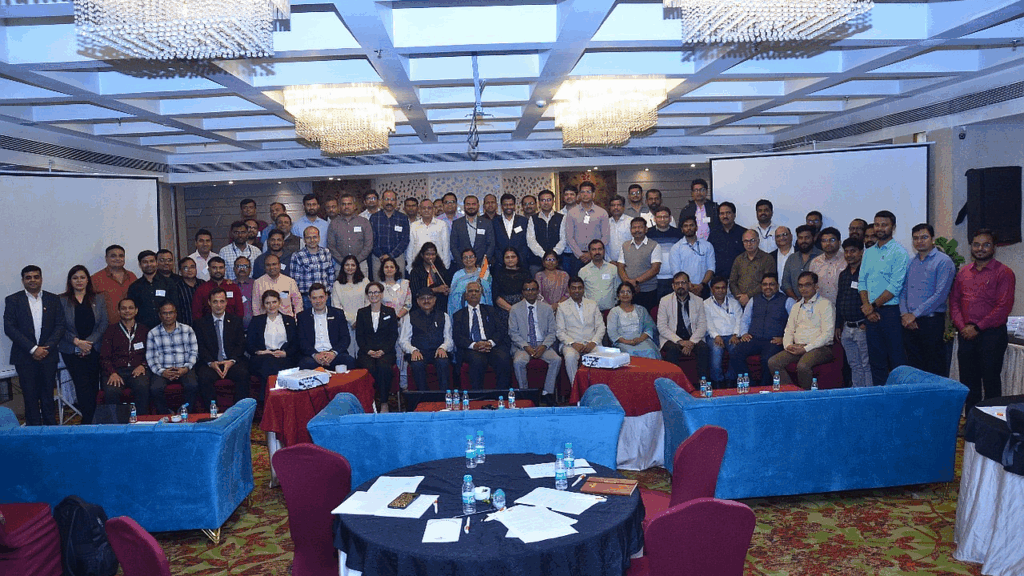In the face of an increasingly volatile energy landscape, the role of gas turbines has never been more critical. Often referred to as the “fire brigade of the power system”, gas turbines are indispensable during extended periods of low wind and solar generation, so-called dark doldrums, which typically occur several times each winter and can last from two to eight days. To ensure grid stability during such events, Germany’s new federal government has reaffirmed its commitment to commissioning up to 20 GW of new gas-fired power capacity, a requirement already identified in 2023 by the country’s transmission system operators and the Federal Network Agency.
Against this dynamic backdrop, the vgbe Conference “Gas Turbines and Gas Turbine Operation” convened on 4 – 5 June 2025 in Wesel, attracting approximately 150 professionals from across Germany and abroad. The two-day event focused on the pivotal role of gas turbines in the energy transition, particularly in relation to hydrogen deployment, operational flexibility, efficiency improvements and decarbonisation strategies.
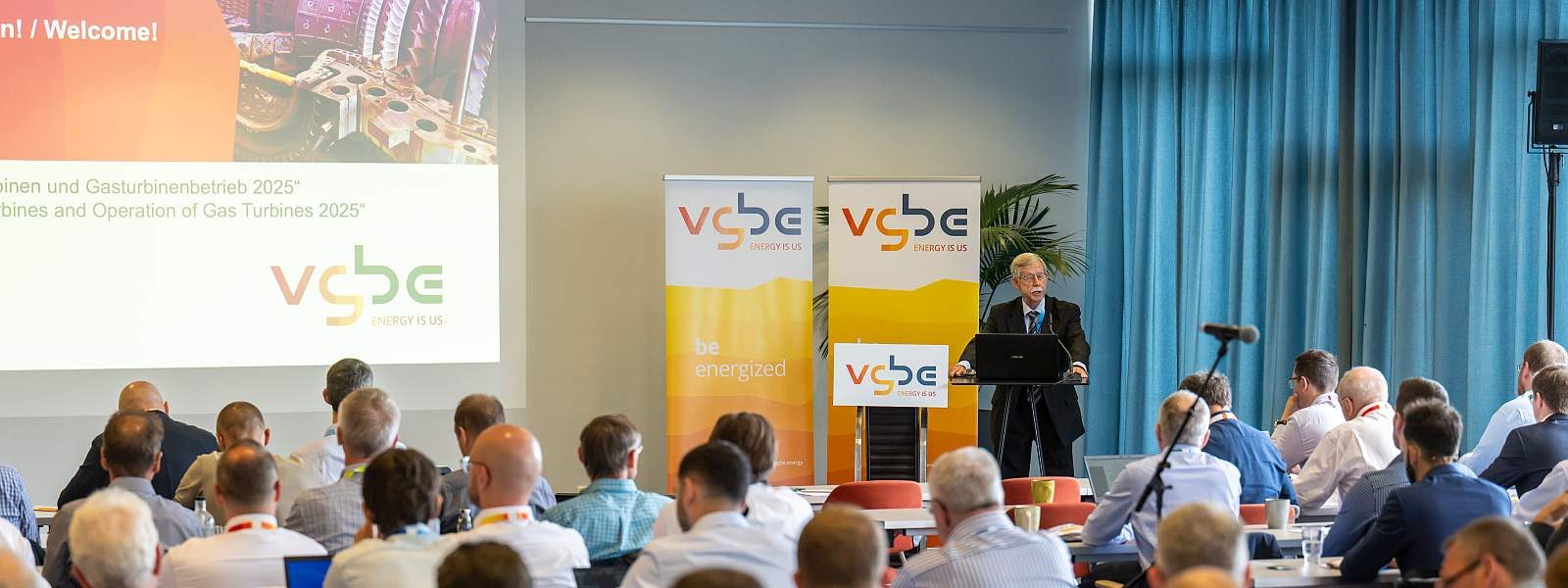
Setting the stage: opening remarks
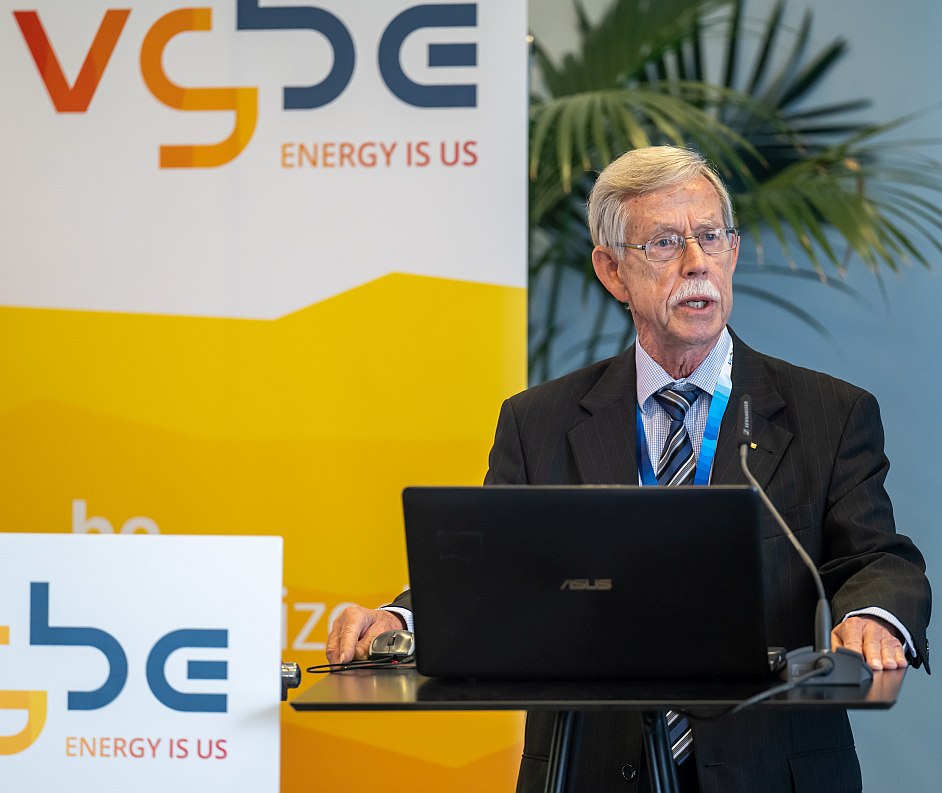
In his keynote address, Dr-Ing Eh Manfred Freimark, Chairman of the vgbe Technical Committee “Gas Turbines and Gas Turbine Operation”, emphasised the essential contribution of gas turbines to ensuring a secure, climate-friendly and economically viable energy supply in Germany and Europe. He called for renewed political attention to industrial realities and a stronger alignment of energy policy with the practical needs of the sector.
Manfred Freimark also referenced the recent BDI (Federation of German Industries)/BCG (Boston Consulting Group) study “Energiewende auf Kurs bringen” (“Getting the energy transition on track“, March 2025), which advocates for market-oriented incentives for H2-ready gas-fired power plants, demand-driven grid expansion and substantial investment in Carbon Capture, Utilisation and Storage (CCUS) technologies.
Technology in focus: key contributions
In their presentation “The critical role of turbomachinery for a successful energy transition“, Giuseppe Tilocca and René Vijgen explored the decisive role of turbomachinery in achieving a successful energy transition. They underscored that only through the modernisation and expansion of thermal generation capacity, supported by technologies such as CCS and green fuels, firm capacity can be secured in the long term. Cutting-edge developments in hydrogen-capable gas turbines, including projects targeting 100% hydrogen operation, illustrated the sector’s remarkable innovation pace.
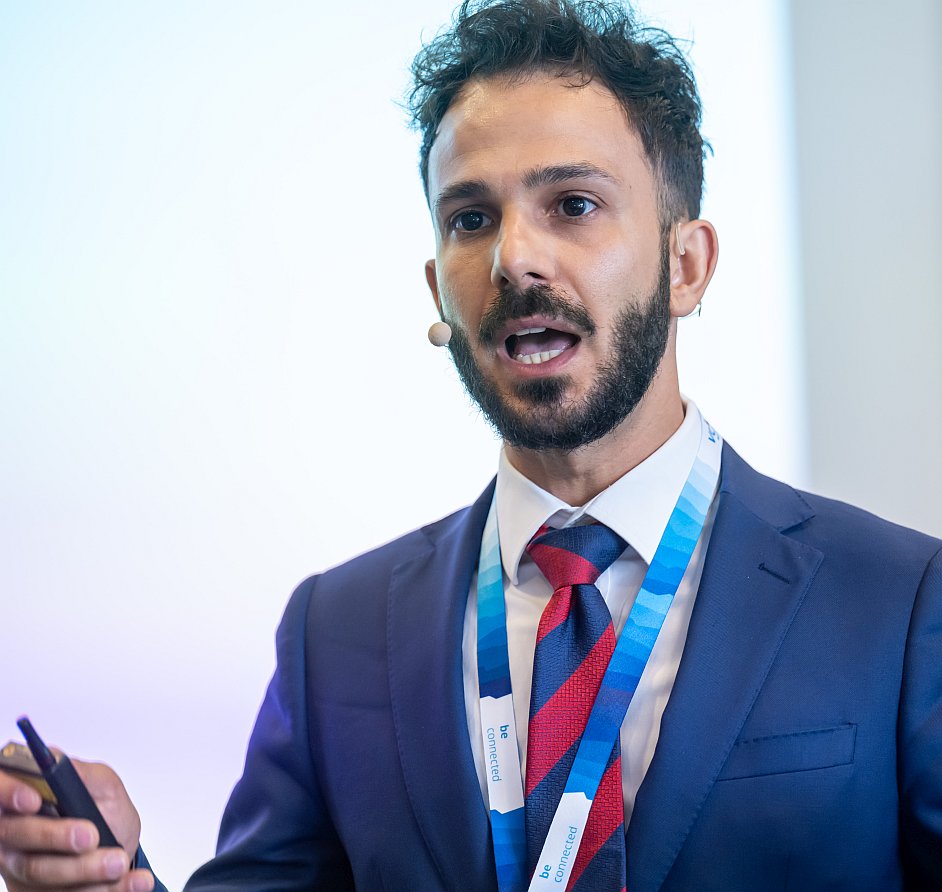
Tobias Neumann and Bernhard Cosic provided deep insights into the integration of post-combustion carbon capture technologies in combined cycle gas turbine (CCGT) plants. In their paper “Carbon capture at CCGT power plants – Overview, requirements, and challenges“ drawing on real-world projects involving F- and H-class turbines, they demonstrated the feasibility of achieving capture rates of up to 95%, equating to annual carbon capture volumes of up to 5 million tonnes (MTPA). Their analysis included a detailed look at plant configurations ranging from 900 MWe to 2,160 MWe, and their implications for CO₂ processing systems.
A particularly forward-looking presentation was delivered by Gerhard Früchtel and Andreas Ciani, who introduced the “FLEX4H2 –100 % hydrogen with sequential combustion“, an EU- and Swiss-funded initiative. The project focuses on sequential combustion technology, already deployed in the GT36 turbine. Currently, these systems can operate with up to 70% hydrogen by volume, reducing CO₂ emissions by 41%. The project aims for full 100% hydrogen capability, validated through high-pressure testing and designed for industrial scalability.
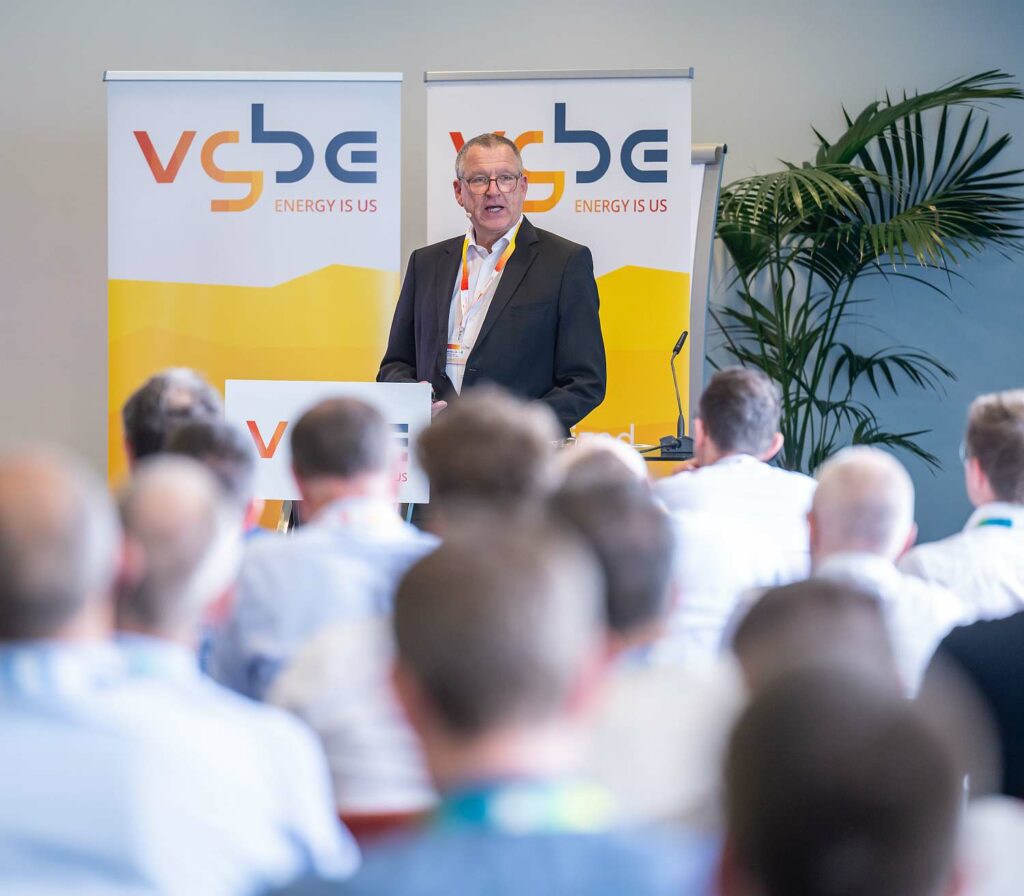
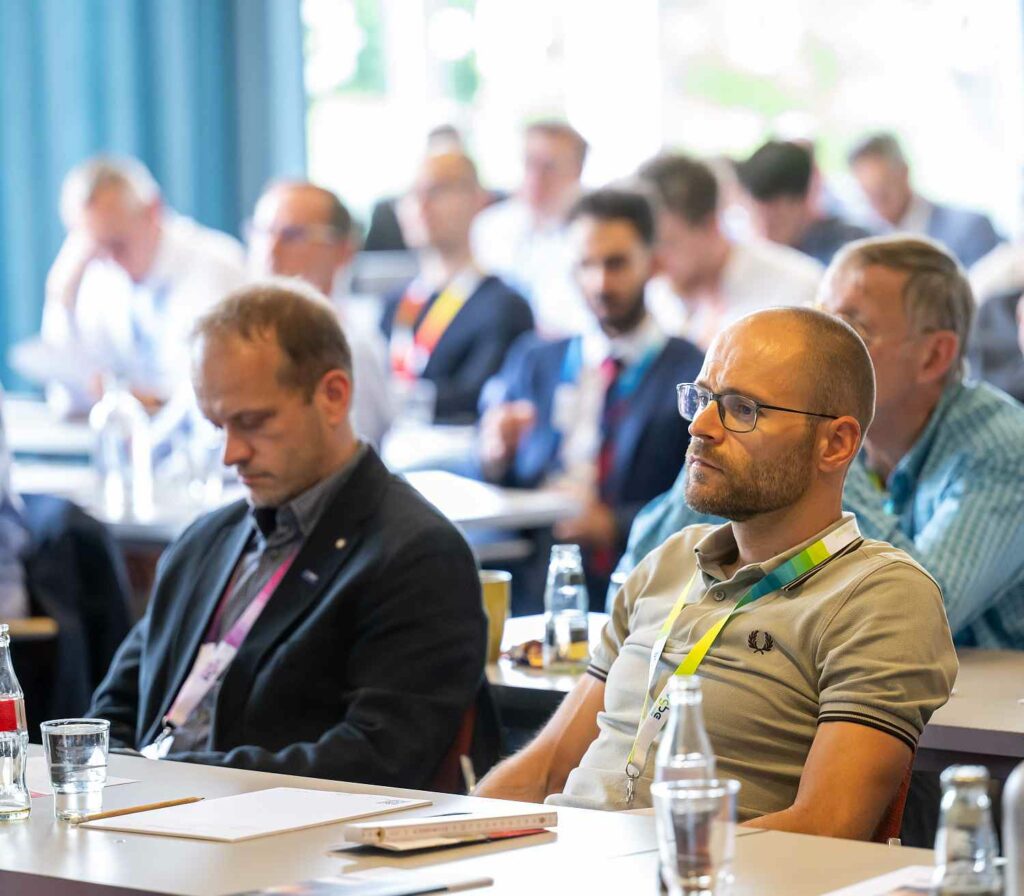
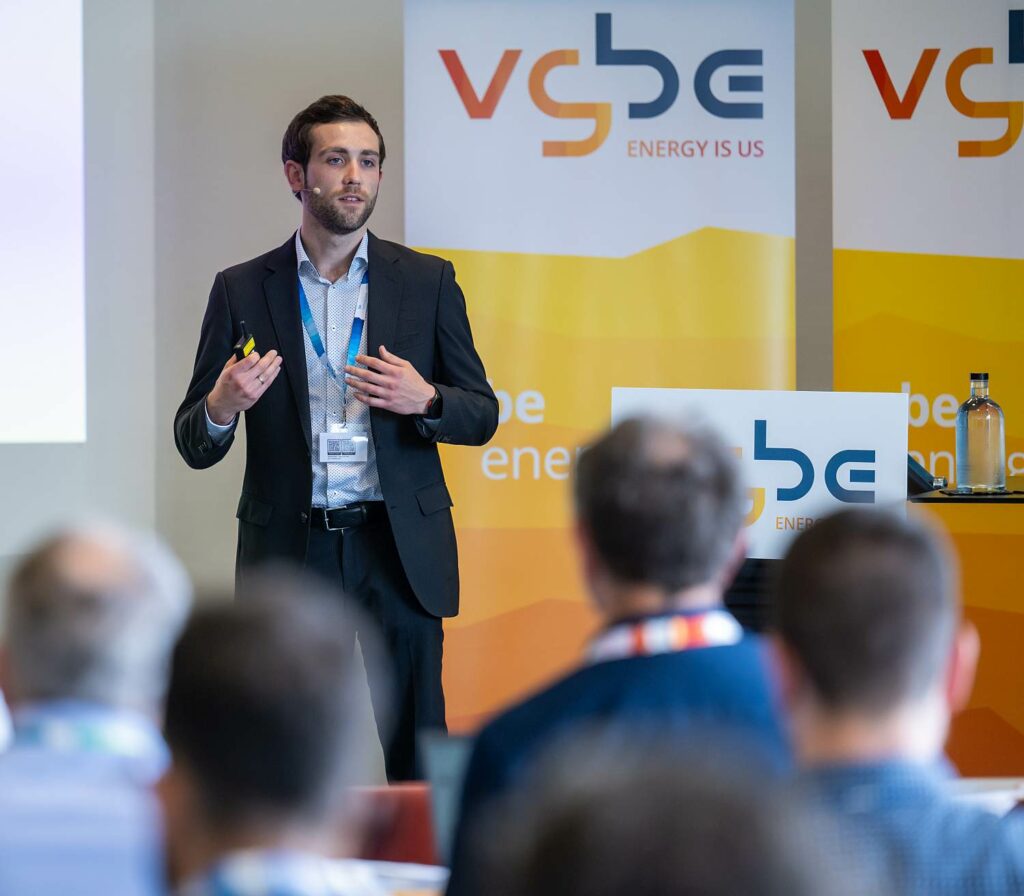
Exhibition, exchange and networking
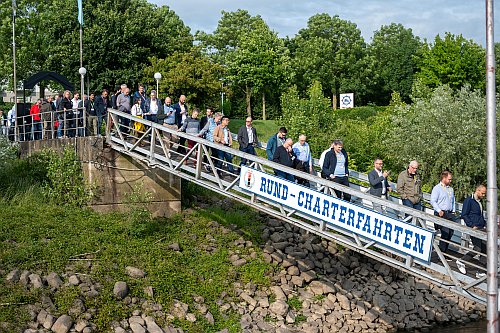
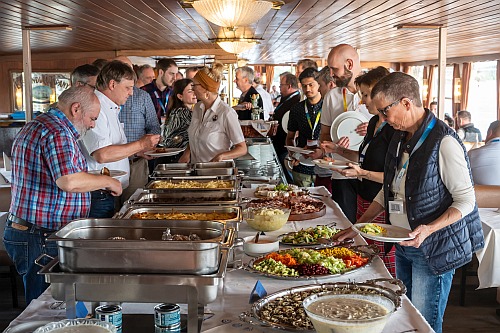
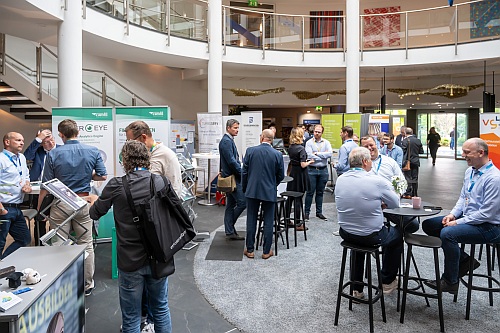
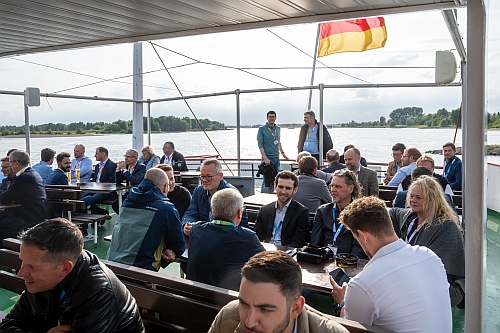
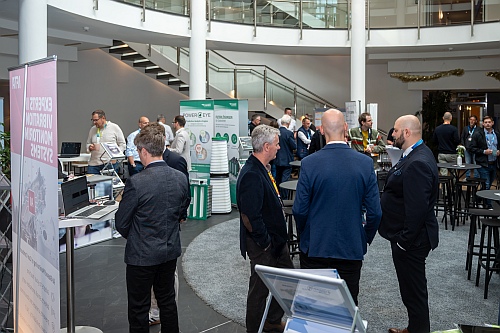
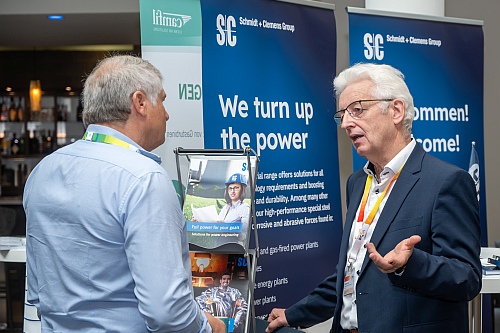
Conclusion and outlook
The 2025 edition of the vgbe Gas Turbine Conference clearly demonstrated that the technological building blocks for a climate-resilient energy system are already in place, from H2-ready turbines to CCS and digital optimisation. What remains lacking is a reliable political and regulatory framework, a coherent market design and investment certainty to unlock these technologies at scale.
vgbe energy e.V. extends its sincere thanks to all speakers, exhibitors and participants for their commitment and contributions. The strong participation, high-quality discussions and shared focus on collaborative solutions made this year’s symposium a resounding success.
The next vgbe Gas Turbine Conference will take place in spring 2027. Venue and date will be announced in due course via the usual channels.
